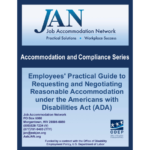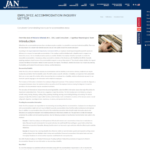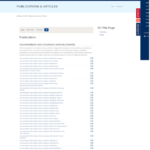Job Quality Tools Library > Section 4: Strengthening Practices to Improve Job Quality > Tools: Legal Rights
Originally posted: May 11, 2020
Last updated: September 21, 2023
Section 4, the core of the library, includes tools designed to address specific components of job quality. Once organizations have determined their job quality priorities, they can turn to these tools to shift practices in the areas they have deemed most urgent, either in their own organizations or in the businesses with which they partner.
We’ve organized tools into categories that reflect the job quality attributes most commonly cited across the job quality frameworks and definitions included in Section 1. These attributes include wages, benefits, scheduling, legal rights, equity and inclusion, opportunity to build skills and advance, supportive work environment, worker voice, and employee ownership. Each attribute also includes sub-categories for ease of navigation.
↓ Tools and Resources Below the Box ↓
Library Navigation
- Job Quality Tools Library Homepage
- About This Library
- Section 1: Understanding Job Quality
- Section 2: Assessing Job Quality
- Section 3: Engaging Businesses on Job Quality
- Section 4: Strengthening Practices to Improve Job Quality
- Section 5: Monitoring Improvements in Job Quality
- Special: COVID-19 Response Tools and Resources
- Index of Tools by Field
Tools

Who’s It For: Worker Advocacy, Workforce Development
What’s It For: While workers are granted basic protections against discrimination under the Civil Rights Act of 1964, these rights are not always enforced. This fact sheet provides a step-by-step walkthrough of the EEOC filing process to take legal recourse against discrimination. Included are sections such as a description of your legal rights, information needed to file a charge, the investigation, the employer’s response, and mediation and settlement. This resource will be most useful for workers facing discrimination and their advocates.

Who’s It For: Employers, Worker Advocacy, Workforce Development
What’s It For: This guide includes information about the legal basics of the Americans with Disabilities Act and how to request and negotiate an accommodation. Each section responds to commonly asked questions about the policies and practicalities of getting an accommodation at work, including if you have to disclose your disability to your employer and what accommodations you can request. This tool could be helpful for an individual employee, a practitioner informing clients of their rights, or an employer seeking to strengthen accommodations.

Job Accommodation Network – Employee Accommodation Inquiry Letter
Who’s It For: Worker Advocacy, Workforce Development
What’s It For: This post and sample letter details how to document your disability and how to share the information with your employer to provide an accommodation. It includes helpful information about an employee’s rights and a sample letter of inquiry to an employer. Employees and the advocates who support them may find this tool useful when interfacing with an employer about needed accommodations.

Job Accommodation Network – Accommodation and Compliance Series by Disability
Who’s It For: Worker Advocacy, Workforce Development
What’s It For: The Job Accommodation Network’s publications include a resource series on Accommodation and Compliance, designed to support employers and employees in determining effective accommodations that comply with the Americans with Disabilities Act (ADA). Each publication in the series addresses a specific medical condition and potential accommodations and points toward resources for additional information. These publications can be used by practitioners assisting employers in accommodating disabilities as well as by individual employees as they discuss accommodations with their employer.
Supplemental Resources
- AFL-CIO – Your Rights at Work. This report provides a guide to an employee’s legal rights at work as well as a list of advocacy organizations that can assist in understanding and enforcing these rights in the workplace. This is a useful resource for worker advocates and other practitioners seeking to deepen their understanding of the statutes that address protected identities, wage theft, unemployment benefits, and more.
- University of Illinois Labor Education Program – Workers’ Rights for Workforce Development. This “train-the-trainer” curriculum is designed for workforce development staff to educate clients about their rights as workers and strategies for protecting those rights. Units include wage and hour regulations, hiring and termination, leaves of absence, discrimination on the job, worker health and safety, and worker organizing. Although the curriculum highlights regulations that are specific to Chicago, the curriculum can serve as a model for others across the country. In addition to workforce development practitioners, worker advocacy professionals may also find this curriculum useful.